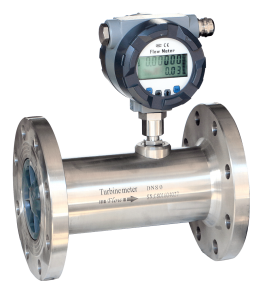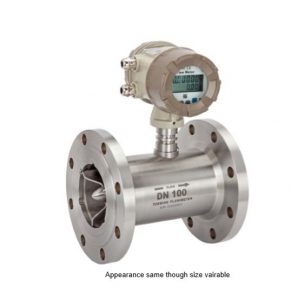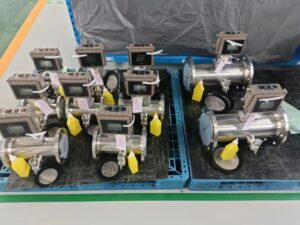1. For flow sensors without bypass pipelines, first open the upstream valve of the flowmeter sensor with a medium opening, and then slowly open the downstream valve. Run for a period of time at a small flow rate (such as 10 minutes), and then fully open the upstream valve, and then open the downstream valve opening to adjust to the required normal flow.
2. For a flow sensor equipped with a bypass pipeline, first fully open the bypass pipe valve, open the upstream valve of the flow sensor with a medium opening, and then slowly open the downstream valve, close the bypass valve opening, so that the meter is set to a smaller opening. The flow runs for a period of time.

Then fully open the upstream valve, fully close the bypass valve (must ensure that the bypass valve does not leak), and finally adjust the downstream valve opening to the required flow rate.
3. For low-temperature and high-temperature fluids, the water in the pipeline should be drained before circulation. When the flow is passed, run at a small flow rate for 15 minutes, and then gradually increase to the normal flow rate.
When the flow is stopped, it should be carried out slowly, so that the pipe temperature and the ambient temperature gradually approach.
4. The opening and closing of the valve should be as smooth as possible.
If the opening and closing of the valve are automatically controlled, it is best to use the “two-stage opening and two-stage closing” method to prevent the fluid from suddenly impacting the impeller or even water hammer damage to the impeller.

5. When the pipeline pressure is not high, the downstream pressure of the flow meter should be checked. Generally, at the initial stage of operation, observe whether the pressure downstream of the sensor is greater than the Pmin of formula (1-46) when the maximum flowmeter is in operation, otherwise, measures should be taken to prevent cavitation.
6. Correctly handle the meter coefficient of the flow sensor. The meter coefficient K of the turbine flowmeter is filled in by the manufacturer on the calibration sheet to the user, and be careful not to lose it.
When using, you should carefully check the internal coefficient switch and multiplication switch of the display instrument coefficient used in the matching use, and their position should be consistent with the corresponding sensor coefficient. After the turbine flowmeter sensor is used for a long time due to bearing wear and other reasons, the meter coefficient K will change, and it should be checked on-site or offline on a regular basis. If the measurement error exceeds the range, the spare sensor should be replaced in time, and the display meter should be reset in time according to the meter coefficient of the new sensor.
7. The technological process that requires regular cleaning of pipelines (such as when transporting refined oil pipelines to replace oil products or when they are out of service), the flow direction, flow rate, pressure, temperature, etc. of the fluid used when cleaning the pipeline should meet the requirements of the turbine flow sensor.
8. When using high-temperature steam to clean the pipeline, remember that the high-temperature steam flows through the sensor to avoid damage.

